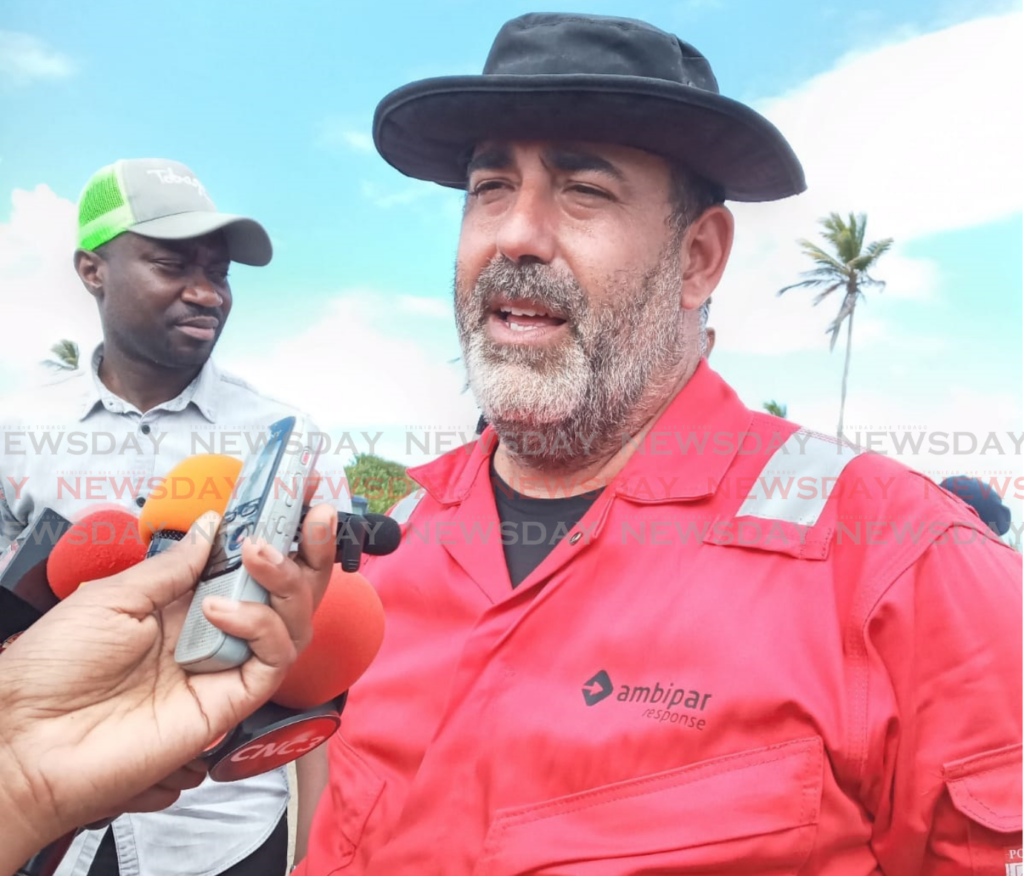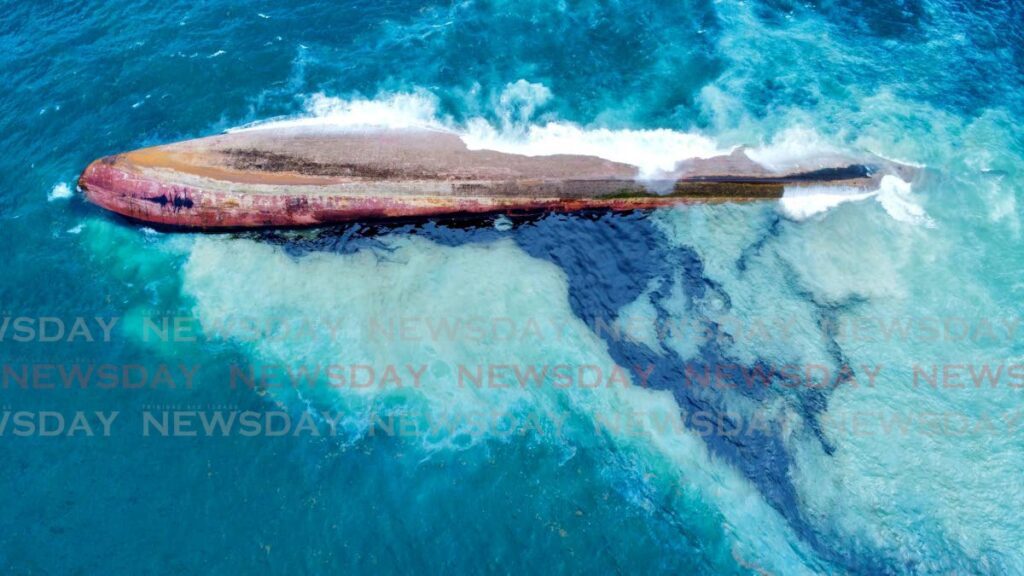Rough Tobago seas prevent plugging oil leak from boat

AMBIPAR Commander Sargao Lombaa says the rough sea conditions around the Gulfstream is preventing the company from plugging the capsized vessel, which was found leaking oil some 200 metres off the coast of the Cove Eco-Industrial Park, Tobago, on February 7.
Speaking to reporters on February 20 during a media tour of the areas affected by the oil spill, Lombaa said, “The area has very strong currents, very strong winds, as the locals working will attest. The divers will know every swell, and all this information they have passed on to us.
“It is a very challenging area by the sea conditions. That is why it is going to impact the whole operation.”
But he said Ambipar’s seamen are working feverishly alongside Tiger Tanks personnel to stop the leak.
Ambipar, based in Sao Paulo, Brazil, works in several sectors to provide services and products related to environmental management. Lombaa said his team has been working 12-hour shifts six days a week.
“Our role here is basically to look for the containment and extraction of the oil that is coming from the ship.”
He said the Tobago Emergency Management Agency (TEMA) has prepared a decontamination area for the team as well as facilities for the extraction equipment – Frac tanks, booms and skimmers.
Asked how the job compares to other similar exercises he has worked on over the years, Lombaa said, “It is difficult to say. It is a good question. Every job is special and has special conditions.
“Sometimes the conditions are more challenging. I think that this is going to be a very special activity.”

THA Chief Secretary Farley Augustine said although the leak was being contained, “The flow continues from the vessel.
“The booms are able to trap the fuel-like substance in a particular zone, keep it within the zone so they can extract it.
"(But) in terms of what is coming out from the vessel, we have not been able to plug the leak on the vessel as yet because we have had some challenges getting the schematics for the ship.
“But we seem to be getting to that point now, and once we get to that point, then we will be able to determine how to move thereafter.”
Lombaa said his team had got the blueprints of the vessel, received information from its original owners (the former operators) and from Ameri-King operators who have been working on the boat.
“Using this information, we will try to understand what is going to be the next step of the operation.”
The tour began at the Scarborough waterfront, where most of the clean-up had been completed.
The media were then taken to an area behind Scarborough Secondary School where a clean-up was proceeding apace. At the Signal Hill River exit point there was still a heavy concentration of the oil-like substance.
The media also visited Petit Trou Beach, Lambeau, where a triage facility has been set up for wildlife rescue and rehabilitation.
Among those touring the affected areas were Kirk Jean-Baptiste, training and education specialist, Office of Disaster Preparedness and Management, and representatives from Serpentine, Kaizen and the Coast Guard.


Comments
"Rough Tobago seas prevent plugging oil leak from boat"